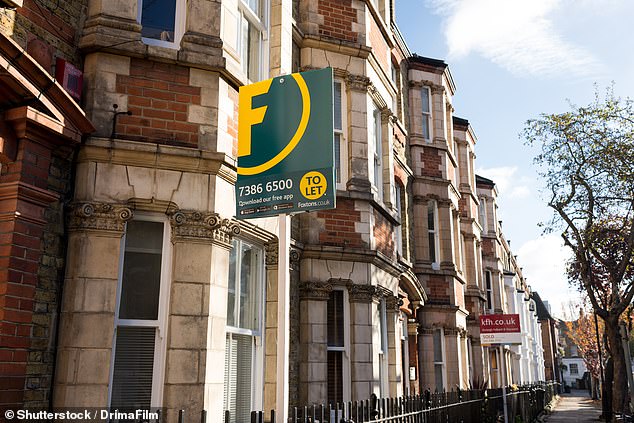House prices won’t rise again until 2025, says major property firm
- JLL said the UK housing market has remained ‘resilient’ despite higher interest rates
- It expects house price falls in 2023 to be ‘less significant’ than those in 2008
Property prices across Britain will have fallen by 6 percent by the end of 2023 and by 3 percent the year after, according to figures from property group JLL.
However, the report says the housing market has remained ‘more resilient than expected’ in the face of rising interest rates and cost of living pressures, meaning falls will be ‘less significant’ than at the height of the global financial crisis of 2008.
Stricter lending rules after 2008 and higher home equity mean that while the housing market is under pressure, “we are not yet seeing significant signs of distress,” the report said.
House prices in Britain: UK property prices could fall by 6% by the end of 2023
The group expects UK property prices to bottom out in 2024, but insists there will be annual declines in most markets by the end of the year.
After that, house prices will start to rise again in 2025.
The report added: ‘We forecast a return to growth in our 2025 forecast as fixed interest rates start to fall and we have more certainty about the outlook.’
In terms of mortgage deals, JLL expects fixed interest rates to become cheaper as the prospect of further rate increases diminishes, but says households will still face higher interest rates than many have been used to for some time.
Separate data from the Bank of England last month showed mortgage approvals for home purchases, which is an indicator of future lending, fell from 45,400 in August to 43,300 in September, the lowest level since January.
It appears that the lack of homes for sale will continue to be a thorny issue.
JLL said: ‘JLL predicts this undersupply will worsen further, with a cumulative shortfall of 720,000 homes between 2023 and 2028.’
Marcus Dixon, Director of UK Residential Research at JLL, said: ‘Despite the uncertainties facing the UK property market, we have seen resilience and stability over the past year.
‘Looking ahead, we predict a bottoming point in prices in 2024, with single-digit annual declines likely.
‘The UK housing market continues to face supply challenges, with a cumulative shortfall of 720,000 homes between 2023 and 2028.
“Addressing these structural barriers is critical to achieving meaningful increases in supply and mitigating affordability issues.”
Figures from Nationwide published on Wednesday show that house prices exceeded expectations by rising 0.9 percent in the month of October, although they remained 3.3 percent lower than the same period a year earlier.
The average home has risen in price from £257,808 in September to £259,423 in October according to the index, which is based on home mortgages.
Nationwide said prices were likely to remain ‘moderate’.
JLL said: ‘Thirteen months after peaking in summer 2022, house prices have fallen by 5.3 per cent, according to figures from Nationwide.
“This compares with a decline of more than 13 percent at the same point after the 2007 peak.”

Rents are rising: according to JLL, the cost of renting a home could increase by 5% in 2024
Rental costs are rising for tenants
While house prices may fall, JLL says renters will face further spikes in rental costs in the coming years.
It said: ‘The imbalance between rental stock and tenant demand pushed rental growth to double digits in 2023.
‘Over the next five years, we expect that the lack of new rental stock – due to fewer new home completions and a more challenging interest rate environment – will cause rental growth to outpace wage growth.’
JLL expects rental prices in the United Kingdom to rise by 5 percent by 2024.
Rental growth is expected to be higher in London as increased competition for shares and affordability issues in the sales market drive demand.
She believes that lower mortgage rates from 2025 will lead to an increase in the number of tenants purchasing a home, which will remove some of the pressure on the market.
